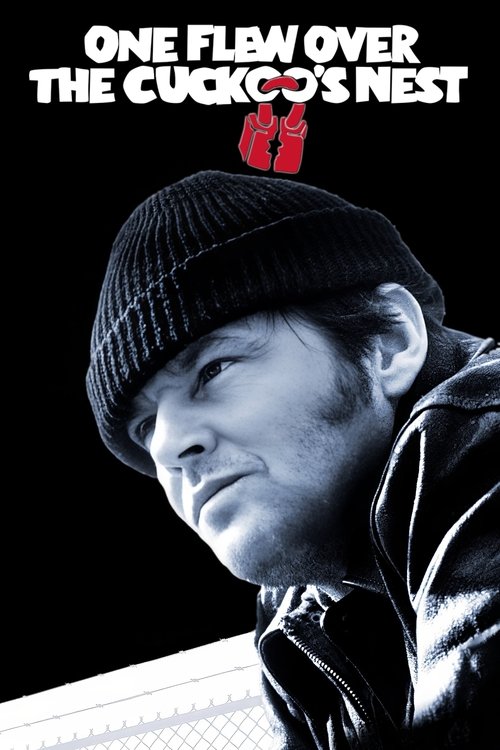
Title: One Flew Over the Cuckoo's Nest
Year: 1975
Director: Miloš Forman
Writer: Bo Goldman
Cast: Jack Nicholson (Randle Patrick McMurphy),
Brad Dourif (Billy Bibbit),
Louise Fletcher (Nurse Mildred Ratched),
Danny DeVito (Martini),
William Redfield (Dale Harding),
Runtime: 133 min.
Synopsis: A petty criminal fakes insanity to serve his sentence in a mental ward rather than prison. He soon finds himself as a leader to the other patients—and an enemy to the cruel, domineering nurse who runs the ward.
Rating: 8.413/10
"You flew over the cuckoo’s nest, buddy." This poignant line signifies the rebellious spirit and tragic consequences within "One Flew Over the Cuckoo’s Nest."
/10
Posted on May 29, 2025
Miloš Forman’s One Flew Over the Cuckoo’s Nest isn’t just a film set in a mental institution; it’s a powerful and deeply humanistic allegory about conformity, rebellion, freedom, and the crushing weight of oppressive systems. When Randle McMurphy (Jack Nicholson), a free-spirited and rebellious con man, is transferred from a prison work farm to a mental institution, hoping to feign insanity and serve out an easier sentence, his infectious zest for life clashes head-on with the rigid authority of Nurse Ratched (Louise Fletcher) and the stifling atmosphere of the ward.
The cinematography, by Haskell Wexler and Bill Butler, has a raw and naturalistic feel, immersing the viewer in the confined and often unsettling environment of the mental institution. The close-ups of the patients’ faces poignantly capture their vulnerability, their anxieties, and their moments of connection. The lighting often emphasizes the starkness of the setting, highlighting the contrast between McMurphy’s vibrant energy and the ward’s oppressive pallor.
The acting performances are universally acclaimed and deeply affecting. Jack Nicholson delivers a tour-de-force performance as Randle McMurphy, embodying his rebellious charm, his genuine empathy for the other patients, and his ultimately tragic defiance. Louise Fletcher’s portrayal of Nurse Ratched is chillingly iconic, a study in passive-aggressive control and the insidious nature of institutional power. The supporting cast, comprised of a remarkable ensemble of actors portraying the diverse patients, including Danny DeVito as Martini, Christopher Lloyd as Taber, and Brad Dourif as the fragile Billy Bibbit, each delivers a memorable and heartbreaking performance, creating a vivid and believable community within the ward.
The setting, the Oregon State Hospital, becomes a character in itself. Its sterile hallways, restrictive routines, and the palpable sense of confinement underscore the film’s themes of institutionalization and the loss of individual freedom. The costumes, the drab patient uniforms and Nurse Ratched’s starched white dress, further emphasize the conformity and the power dynamic within the ward.
Jack Nitzsche’s film score is subtle yet deeply resonant. Its melancholic melodies and gentle orchestrations underscore the patients’ vulnerability and the underlying sadness of their situation. The music swells at key emotional moments, amplifying the film’s poignant impact without ever becoming overly sentimental.
The screenplay, adapted by Lawrence Hauben and Bo Goldman from Ken Kesey’s novel, is a powerful and moving exploration of individuality versus conformity. McMurphy’s infectious rebellion sparks a sense of hope and self-discovery among the other patients, challenging Nurse Ratched’s iron grip on the ward. The film explores themes of sanity and insanity, freedom and oppression, and the tragic consequences of defying authority.
One Flew Over the Cuckoo’s Nest is a timeless and deeply humanistic film that resonates with audiences even today. Its powerful performances, poignant story, and allegorical themes make it a profound and unforgettable cinematic experience that continues to provoke thought and emotion.
0
0
